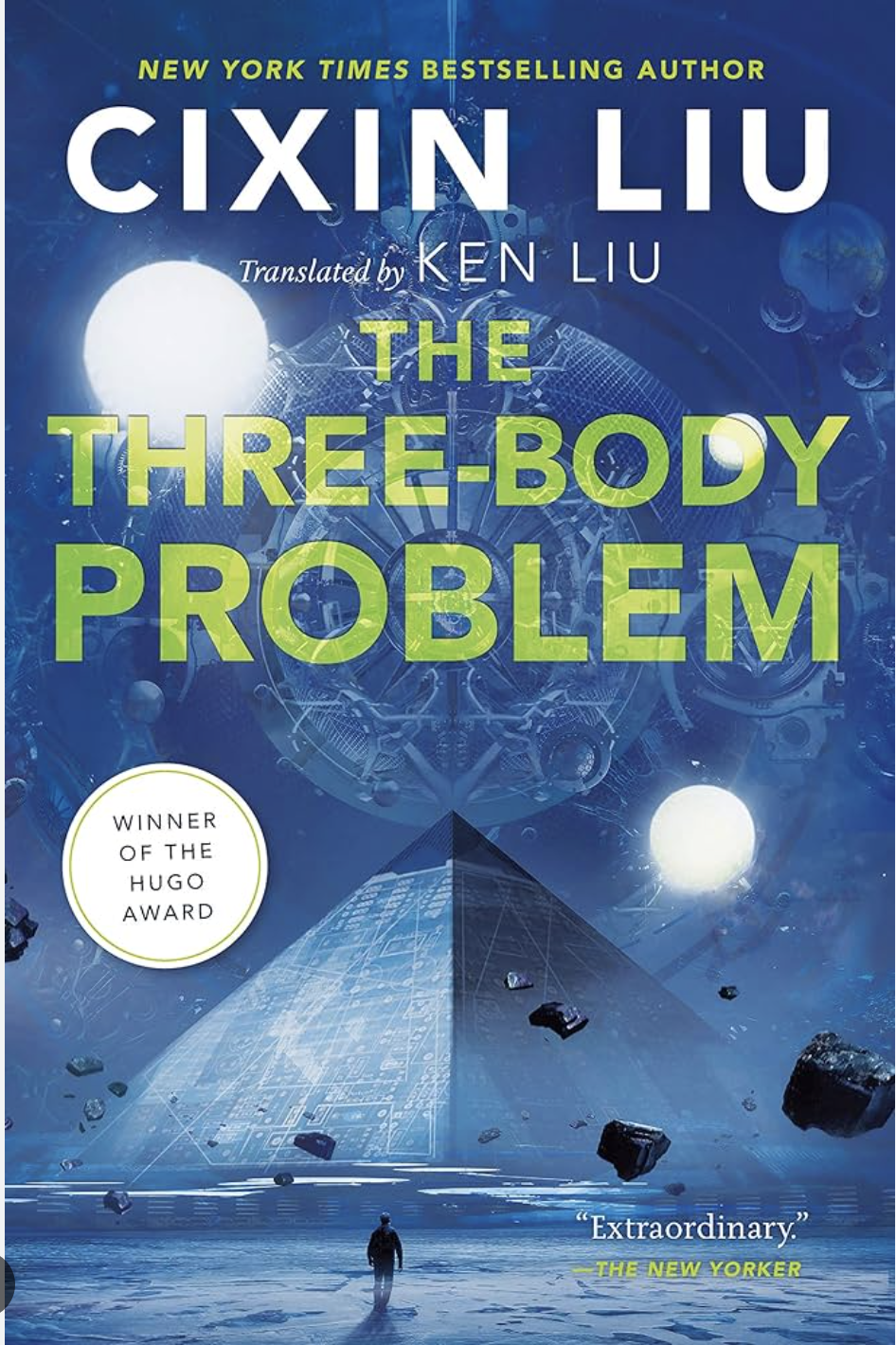
The Three-Body Problem" by Liu Cixin is a thought-provoking science fiction masterpiece that transcends the boundaries of traditional storytelling. Set against the backdrop of China’s Cultural Revolution and the enigmatic mysteries of the cosmos, Liu Cixin weaves a narrative that challenges conventional perceptions of humanity’s place in the universe while delving into complex themes of technology, morality, and the nature of existence itself.
The novel opens with Ye Wenjie, a young astrophysicist whose father’s wrongful death during the Cultural Revolution shapes her disillusionment with humanity and fuels her desire to escape Earth’s constraints. Through Ye’s perspective, readers are introduced to the enigmatic virtual reality game, “Three-Body,” which serves as a conduit for communication between Earth and an alien civilization known as the Trisolarans. The discovery of the Trisolaran existence poses an existential threat to humanity, setting the stage for a riveting exploration of the consequences of first contact.
Central to the novel’s narrative is the titular “three-body problem,” a physics concept that symbolizes the inherent unpredictability and chaos of celestial mechanics. As humanity grapples with the implications of the Trisolaran threat, Liu Cixin deftly intertwines scientific principles with philosophical reflections on the nature of progress and the ethical dilemmas posed by technological advancement. Through characters such as Wang Miao, a nanomaterials researcher drawn into a covert government investigation, and Shi Qiang, a hard-boiled detective with a penchant for unorthodox methods, the novel navigates the intricacies of human nature and the quest for understanding in the face of existential uncertainty.
Liu Cixin’s prose is both lyrical and evocative, immersing readers in a richly imagined world that seamlessly blends historical events with speculative fiction. From the haunting landscapes of China’s Cultural Revolution to the awe-inspiring vistas of distant galaxies, the novel’s scope is as vast as the cosmos it seeks to explore. Through meticulous attention to detail and vivid imagery, Liu Cixin crafts a narrative that resonates with both intellectual depth and emotional resonance, inviting readers to ponder the mysteries of the universe and the potential of humanity’s collective imagination.
One of the novel’s most compelling aspects is its exploration of the cultural and ideological clashes that shape human civilization. As factions vie for dominance in the face of the Trisolaran threat, Liu Cixin paints a nuanced portrait of power dynamics and ideological conflict, challenging readers to confront the complexities of human nature and the moral ambiguities of survival in an uncertain world. Through allegorical parallels to real-world historical events and philosophical debates, the novel offers a profound meditation on the nature of progress and the enduring quest for meaning in an ever-changing universe.
“The Three-Body Problem” is a triumph of speculative fiction that transcends genre conventions to offer a profound meditation on the human condition and the mysteries of existence. With its sweeping scope, thought-provoking themes, and masterful storytelling, Liu Cixin’s novel stands as a testament to the power of science fiction to inspire wonder, provoke introspection, and expand the boundaries of human imagination. As humanity ventures into the unknown depths of space, “The Three-Body Problem” serves as a timeless exploration of the cosmic puzzle that defines our place in the universe.